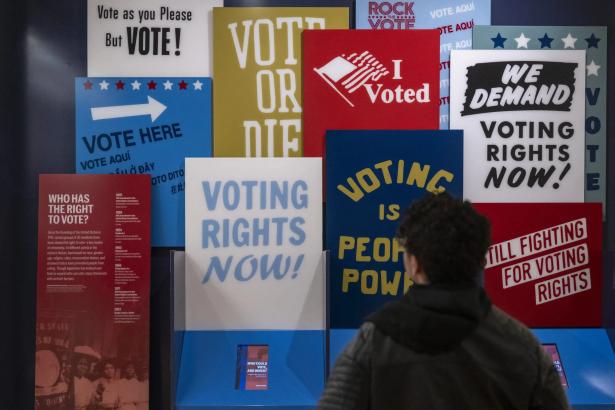A federal district court’s order on Thursday allowing South Carolina to use a racially discriminatory congressional map for the 2024 election cycle is a gut punch to Black voters.
“For over a century, the NAACP has worked fervently to protect Black Americans’ access to the ballot box. Make no mistake — these discriminatory maps are a direct attempt to suppress Black voices ahead of a consequential election,” Brenda Murphy, the president of the South Carolina State Conference of the NAACP, a plaintiff in the case, said in a statement.
Without a fair map, it would be enormously difficult for Black voters to elect a representative who has their interests at heart and who would fight for them on issues ranging from education to criminal justice to health care.
It’s still possible for the U.S. Supreme Court to step in before the Palmetto State’s June 11 primaries, but that seems increasingly unlikely. At least for now, it appears that Black voters are stuck with a racially discriminatory map.
For House Republicans, who are hoping to maintain their wafer-thin majority, the court’s order is a major victory. For Black voters, however, the very opposite is true.
“Important decisions are made based on who the representative is. And these decisions affect people’s ability to live a quality life,” Murphy told Capital B last year.
In January 2023, a three-judge panel found that South Carolina lawmakers had expelled some 30,000 Black voters in Charleston County from the 1st Congressional District and moved them to the 6th District. This “bleaching of African American voters” from the area, the panel wrote, diluted their voting power, and it ordered the state legislature to redraw the map.
After the state appealed the decision to the U.S. Supreme Court, the justices heard oral arguments in October, and seemed prepared to side with South Carolina Republicans. They insisted that they were motivated not by racially discriminatory intent but by partisan loyalty, even though race and party are linked.
Attorneys had asked the high court to decide by the start of this year, “but with the primary election procedures rapidly approaching, the appeal before the Supreme Court still pending, and no remedial plan in place, the ideal must bend to the practical,” the district court wrote.
Even with this disappointing news, Black voters’ commitment to securing a fair map hasn’t wavered.
“The people of our state and our country deserve more than suppression and discriminatory practices,” Taiwan Scott, the individual plaintiff in the case, said in a statement. “We will continue to fight to bring justice to congressional elections in South Carolina.”
Brandon Tensley is Capital B's national politics reporter.
Capital B is a nonprofit news organization dedicated to uncovering important stories — like this one — about how Black people experience America today. As more and more important information disappears behind paywalls, it's crucial that we keep our journalism accessible and free for all. But we can't publish pieces like this without your help. If you support our mission, please consider becoming a member by making a tax-deductible donation. Thank you! DONATE


Spread the word